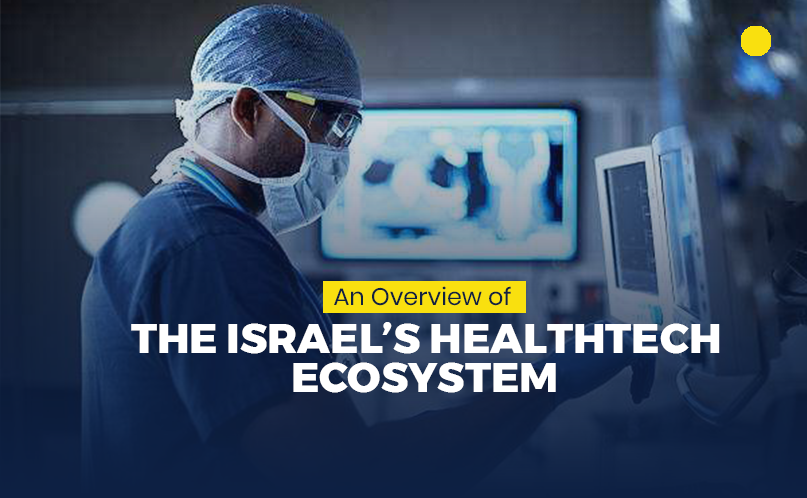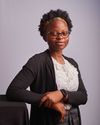Overview Of Israel Health-Tech Ecosystem

Israel is well known for its highly effective and renowned healthcare system. With about 1600 innovative companies, technology and a wide range of governmental programs, Israel has become a pioneer in the health sector worldwide.
Over the last 25 years, the country has managed to create a healthcare system that operates perfectly under the law. In 2020, it was ranked the 3rd most efficient health system in the world and according to a recent FREOPP ranking, its health research system takes the 4th position in the world, ahead of that of the United States.
In recent times, Israel has pivoted to a more digital system and continues to explore ways in which technology can be optimized to provide premium healthcare services for its citizens. There are about 800 healthcare startups in Israel and the number grows yearly. These startups play a vital role in shaping the system by solving basic problems in innovative ways.
Israel And The HealthTech Ecosystem
The application of technology into the daily activities of humans has resulted in a more efficient and better-improved lifestyle. Although the country’s health system has been quite impressive, the recent pandemic has left a dent in the sector that needs to be fixed.
With the aid of the Israeli health-tech ecosystem, the country is gradually recovering from the pandemic era and moving forward.
In 2021, the digital health sector drew in $1 billion in new investments, raising capital and selling their services worldwide. Even though the government plays a vital role in the growth of health tech in the country, the ecosystem in Israel is majorly independent.
There are various indigenous health-tech startups building and shaping up the ecosystem in Israel. Although the healthcare system is very advanced, there is still a gap for these tech startups to fill.
Healthy.io
Healthy.io, formerly known as OwnHealth is an app that has utilized facial recognition technology to aid doctors with diagnosis. It has also been able to leverage smartphone and cloud technology to create medical imaging and expand the use of colour-based healthcare.
Founded in 2013, the company received $60 million in Series C funding, bringing its total funding to the sum of $90 million.
In the closing part of 2020, the startup partnered with Blue Cross of Idaho, an insurance company, in the USA, the partnership is meant to provide a platform for the insurance company members to have access to early dictation of chronic kidney disease, another form of kidney damage. The startup also recently expanded its, leadership team, by adding 2 specialists on board from the USA.
Tyto Care
Tyto Care is an online platform that provides users with easy access to consultations by providing them with a means to physically self-examine, store data and remotely sends to medical practitioners all over the web. It was founded in 2011 and has received a total funding of $155 million.
Last November, the CEO Dedi Gilad launched a new update that hopes to give health workers and medical companies the range of goods and services required to operate perfect virtual primary care programs. In doing so, Tyto Care has become the first remote health tech to bridge the gap between ROI and care in the traditional telehealth industry.
Hello Heart
Hello heart offers a mobile platform for high blood pressure and heart risk workers to check and monitor their heart rates and prevent heart-related risks. They are available to both iOS and Android users in Israel. Hello heart was launched in 2013 and is backed by major investors like Stripe and IVP.
In 2022, the founder, Maayan Cohen announced a new feature that allows its users to keep track of their cholesterol levels. It also alerts users when to get tested and lets them schedule appointments at nearby clinics, making it the first company to offer a management platform for people with hyperlipidemia (too many lipids or fats).
OrCam
OrCam is on a mission to utilize the power of artificial vision by integrating technology into a platform that improves the standard of living of the visually impaired and individuals with reading problems.
It has provided a high-tech device with the ability to enhance visual aid. OrCam was co-founded by Ziv Aviram and Amnon Shashua in 2010. In 2018, the startup completed a funding round which valued it at $ 1 billion. This funding conveniently places it in the Unicorn status within the Mena region. The Health tech is also linked to a driver assistant and Autonomous technology platform, Mobileye.
DayTwo
DayTwo is a web-based platform dedicated to providing users with personalized nutrition through a unique based artificial intelligence algorithm to help people to maintain normal blood sugar levels based on their microbiome.
In 2021, the company raised $39 million in funding bringing its total fundraising to $85 million. DayTwo guarantees that its platform for metabolic disease improves health and eliminates prescription medications by improving gut health through microbiome profiling and virtual care.
Health tech is bringing a wide range of advancements to the Israeli healthcare system. From improved access to care to better use of data, health-tech is revolutionizing the way health care is delivered in Israel.
With the use of telemedicine, patients can now access care from the comfort of their own homes, allowing them to receive care without having to travel to a hospital or clinic. In addition, health-tech is enabling the use of big data to gain insights into patient health, allowing for more personalized and effective care. By leveraging the latest technologies, health-tech is helping to improve the quality of care in Israel and make it more accessible to all.
Israel remains are the forefront of health technology worldwide, there is much to learn from their health tech and we can only hope that the nation shares its innovations with the world in the near future.
